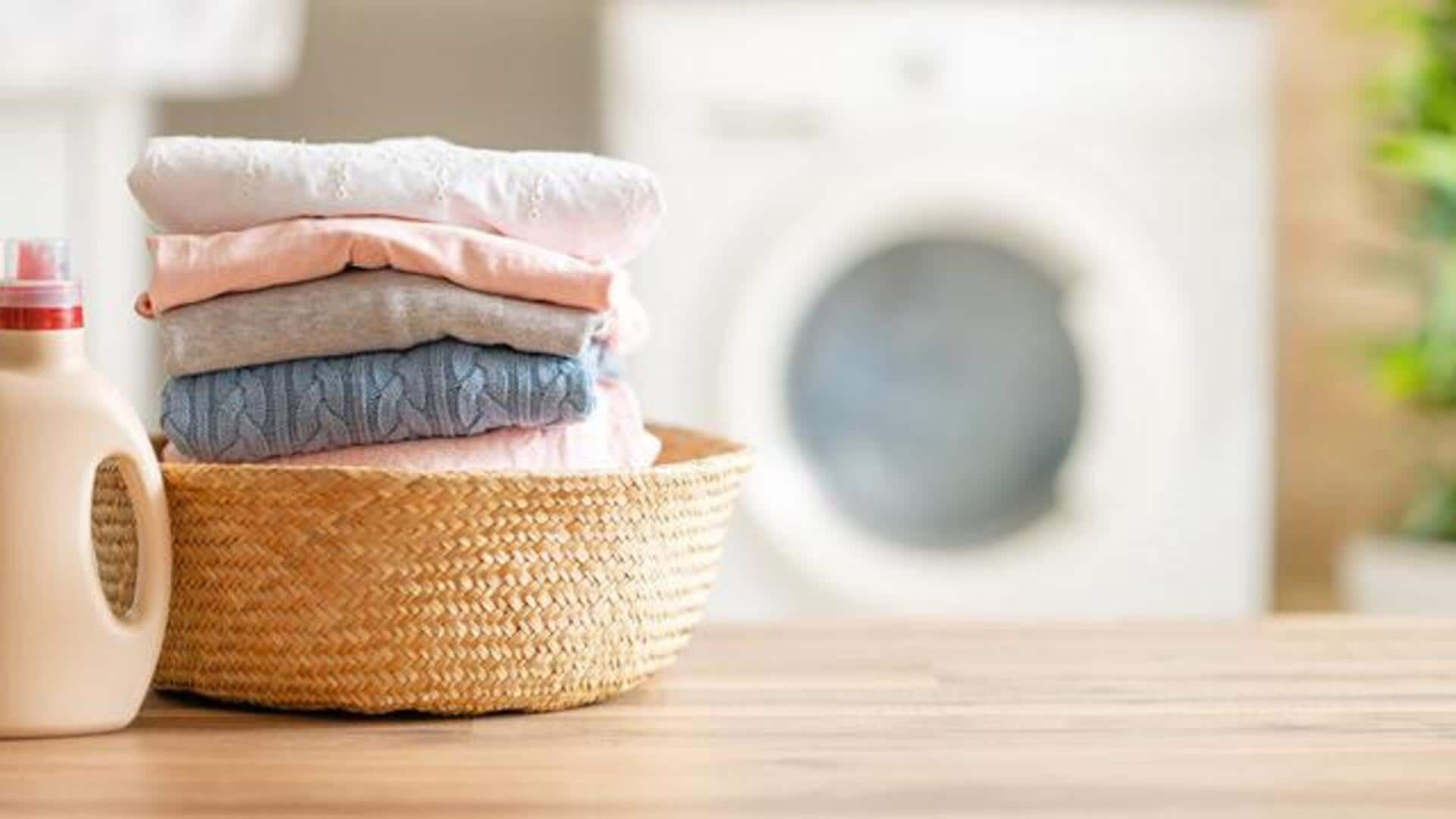
How to cut laundry costs: 5 hacks
What's the story
In most African homes, doing laundry is a major part of day-to-day life. However, with the increasing cost of living, it can be useful to discover budget-friendly and eco-conscious ways to do laundry. Here's a look at some practical hacks that not only save you money but also help you do your bit for the environment. These tips use locally available resources and traditions, making them accessible to most families across the continent.
Soap substitutes
Using natural soap alternatives
Natural soap alternatives such as soap nuts or homemade plant-based detergents can be equally effective in cleaning clothes. Soap nuts are berries that contain saponin, a natural detergent that cleanses without the harmful chemicals. They are also biodegradable and can be reused several times before being composted. Homemade detergents using ingredients like baking soda and lemon juice provide an affordable solution while minimizing chemical exposure.
Solar drying
Harnessing solar power for drying
Using solar power to air-dry clothes in the sun is not only cheap but also eco-friendly. Sunlight disinfects fabrics naturally, which means you won't need chemical sanitizers as much. This also saves on your electricity bill (since you won't be using electric dryers) and prolongs the life of your clothes by preventing heat damage.
Rainwater collection
Collecting rainwater for washing
Collecting rainwater also provides a free source of water for laundry, especially in regions where it rains a lot. By installing basic rain barrels or tanks, households can easily collect water. Not only does the practice minimize reliance on municipal supplies, but it also cuts down utility bills and saves treated water. Making it an environmentally-friendly option for most families.
Cold wash methods
Cold water washing techniques
Washing clothes in cold water instead of hot significantly cuts down energy consumption, since heating accounts for a large portion of electricity use in laundry tasks. Cold water does wonders when coupled with pre-soak methods, or soft agitation, to dislodge dirt effectively without compromising fabric quality.
Greywater reuse
Reusing greywater safely
Reusing greywater from baths/sinks for laundry is a smart way to conserve fresh water and reduce utility bills. However, it is important to check that the greywater is free from harsh chemicals before using it. Opting for mild soaps is advisable for those planning to adopt this method regularly. This approach is a key part of sustainable household practices, ensuring minimal environmental impact.